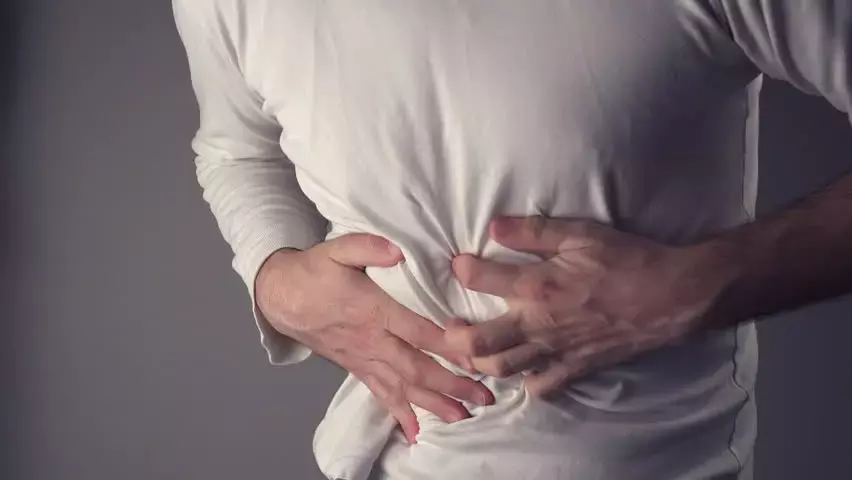- Home
- Medical news & Guidelines
- Anesthesiology
- Cardiology and CTVS
- Critical Care
- Dentistry
- Dermatology
- Diabetes and Endocrinology
- ENT
- Gastroenterology
- Medicine
- Nephrology
- Neurology
- Obstretics-Gynaecology
- Oncology
- Ophthalmology
- Orthopaedics
- Pediatrics-Neonatology
- Psychiatry
- Pulmonology
- Radiology
- Surgery
- Urology
- Laboratory Medicine
- Diet
- Nursing
- Paramedical
- Physiotherapy
- Health news
- Fact Check
- Bone Health Fact Check
- Brain Health Fact Check
- Cancer Related Fact Check
- Child Care Fact Check
- Dental and oral health fact check
- Diabetes and metabolic health fact check
- Diet and Nutrition Fact Check
- Eye and ENT Care Fact Check
- Fitness fact check
- Gut health fact check
- Heart health fact check
- Kidney health fact check
- Medical education fact check
- Men's health fact check
- Respiratory fact check
- Skin and hair care fact check
- Vaccine and Immunization fact check
- Women's health fact check
- AYUSH
- State News
- Andaman and Nicobar Islands
- Andhra Pradesh
- Arunachal Pradesh
- Assam
- Bihar
- Chandigarh
- Chattisgarh
- Dadra and Nagar Haveli
- Daman and Diu
- Delhi
- Goa
- Gujarat
- Haryana
- Himachal Pradesh
- Jammu & Kashmir
- Jharkhand
- Karnataka
- Kerala
- Ladakh
- Lakshadweep
- Madhya Pradesh
- Maharashtra
- Manipur
- Meghalaya
- Mizoram
- Nagaland
- Odisha
- Puducherry
- Punjab
- Rajasthan
- Sikkim
- Tamil Nadu
- Telangana
- Tripura
- Uttar Pradesh
- Uttrakhand
- West Bengal
- Medical Education
- Industry
Delayed Presentation of Cecal Volvulus Increases Mortality Risk

Cecal volvulus is the second most common form of colonic volvulus after sigmoid volvulus and represents approximately 1–1.5% of all adult intestinal obstruction. In a recent study, researchers have found that cecal volvulus carries a high risk of mortality which is associated with delayed preoperative diagnosis and treatment. The study findings were published in the BMC Surgery on December 19, 2021.
Cecal volvulus, which is a torsion involving the cecum, terminal ileum, and ascending colon around its own mesentery, results in a closed-loop obstruction. Various reports have described cecal volvulus within the literature, typically with individual or few patients. Therefore, Dr Robert K. Parker and his team conducted a study to review the clinical presentation, management, and outcome of patients with cecal volvulus at a referral hospital in rural Kenya.
In this retrospective review, the researchers included 13 patients with a diagnosis of cecal volvulus between January 1st, 2009 and December 31st, 2019 at Tenwek Hospital in Bomet, Kenya. All patients presented with abdominal pain and distension. They compared the outcome of survival by the time to presentation. They also compared the mortality with prior reports of intestinal obstruction at our institution.
Key findings of the study:
- Among 13 patients, the researchers observed seven patients (54%) presented with perforation, gangrene, or gross peritoneal contamination.
- They noted that common risk factors were Ladds bands with malrotation, adhesions, and a sigmoid tumour.
- Procedures performed include primary resection and anastomosis (7), damage control (3) with anastomosis on second-look in 2 of these, simple surgical detorsion (1), and surgical detorsion and cecopexy (2).
- They found four mortalities (31%), of which all had delayed presentation with perforation and fecal contamination.
- They observed that delays to the presentation were associated with mortality.
- They further noted that cecal volvulus resulted in increased perioperative mortality compared to all intestinal obstructions presenting to the institution.
The authors concluded, "The etiology of cecal volvulus is multifactorial, with an underlying anatomic predisposition. Cecal volvulus carries a high risk of mortality. A high index of suspicion and early consideration in the differential diagnosis of intestinal obstruction should be considered to reduce the mortality associated with the delay in preoperative diagnosis."
For further information:
Medical Dialogues Bureau consists of a team of passionate medical/scientific writers, led by doctors and healthcare researchers. Our team efforts to bring you updated and timely news about the important happenings of the medical and healthcare sector. Our editorial team can be reached at editorial@medicaldialogues.in.
Dr Kamal Kant Kohli-MBBS, DTCD- a chest specialist with more than 30 years of practice and a flair for writing clinical articles, Dr Kamal Kant Kohli joined Medical Dialogues as a Chief Editor of Medical News. Besides writing articles, as an editor, he proofreads and verifies all the medical content published on Medical Dialogues including those coming from journals, studies,medical conferences,guidelines etc. Email: drkohli@medicaldialogues.in. Contact no. 011-43720751


